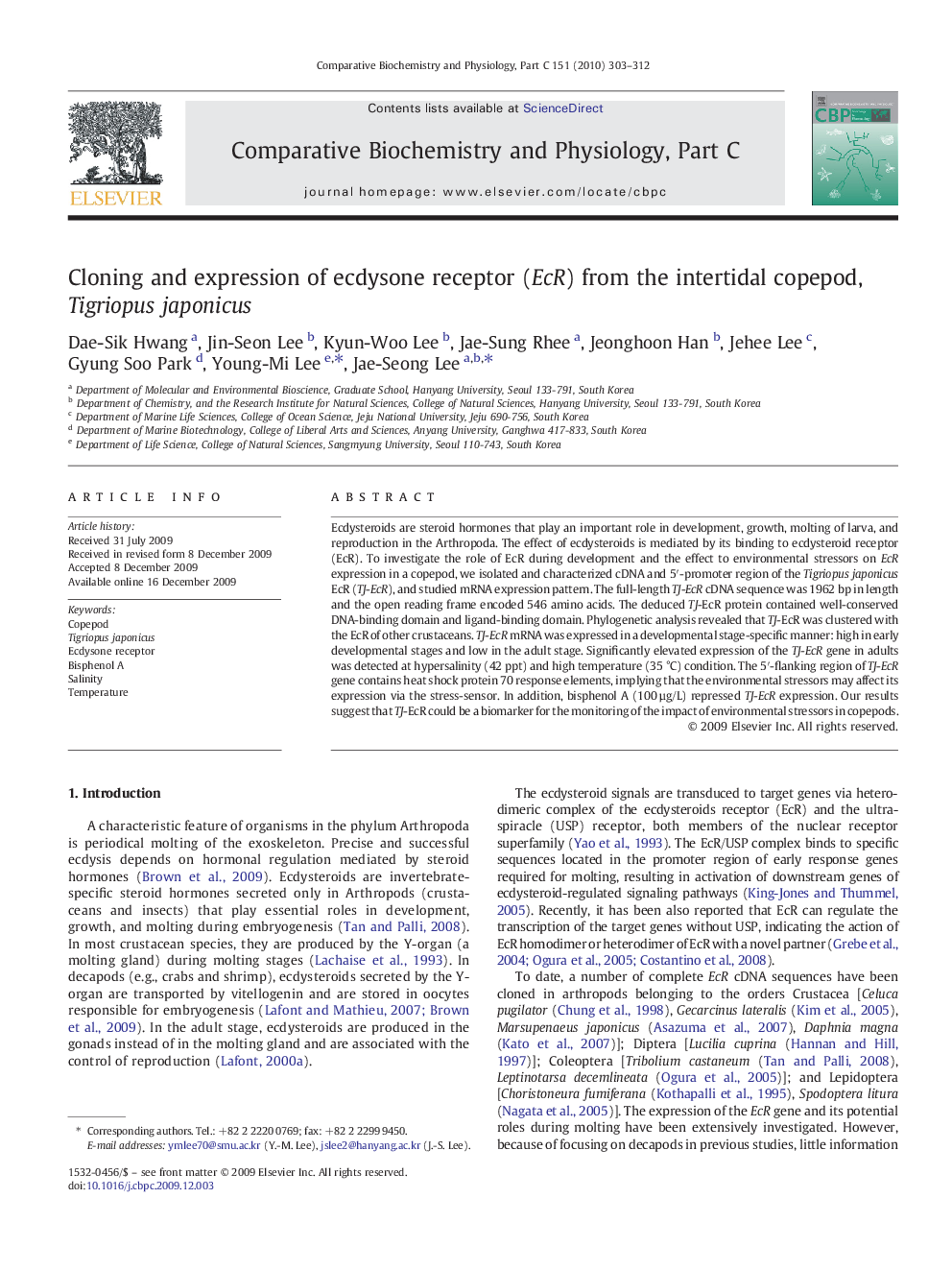| Article ID | Journal | Published Year | Pages | File Type |
|---|---|---|---|---|
| 1977697 | Comparative Biochemistry and Physiology Part C: Toxicology & Pharmacology | 2010 | 10 Pages |
Abstract
Ecdysteroids are steroid hormones that play an important role in development, growth, molting of larva, and reproduction in the Arthropoda. The effect of ecdysteroids is mediated by its binding to ecdysteroid receptor (EcR). To investigate the role of EcR during development and the effect to environmental stressors on EcR expression in a copepod, we isolated and characterized cDNA and 5â²-promoter region of the Tigriopus japonicus EcR (TJ-EcR), and studied mRNA expression pattern. The full-length TJ-EcR cDNA sequence was 1962 bp in length and the open reading frame encoded 546 amino acids. The deduced TJ-EcR protein contained well-conserved DNA-binding domain and ligand-binding domain. Phylogenetic analysis revealed that TJ-EcR was clustered with the EcR of other crustaceans. TJ-EcR mRNA was expressed in a developmental stage-specific manner: high in early developmental stages and low in the adult stage. Significantly elevated expression of the TJ-EcR gene in adults was detected at hypersalinity (42 ppt) and high temperature (35 °C) condition. The 5â²-flanking region of TJ-EcR gene contains heat shock protein 70 response elements, implying that the environmental stressors may affect its expression via the stress-sensor. In addition, bisphenol A (100 µg/L) repressed TJ-EcR expression. Our results suggest that TJ-EcR could be a biomarker for the monitoring of the impact of environmental stressors in copepods.
Related Topics
Life Sciences
Biochemistry, Genetics and Molecular Biology
Biochemistry
Authors
Dae-Sik Hwang, Jin-Seon Lee, Kyun-Woo Lee, Jae-Sung Rhee, Jeonghoon Han, Jehee Lee, Gyung Soo Park, Young-Mi Lee, Jae-Seong Lee,
